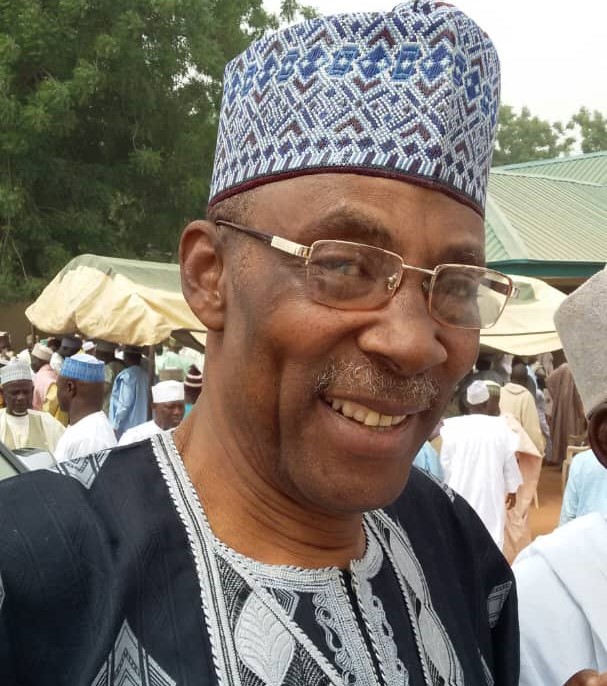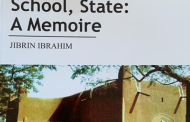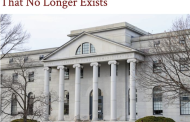By Adagbo Onoja
Prof Tukur Baba’s emergence as spokesperson for the Arewa Consultative Forum (ACF) will make news on two key grounds. First ground is the how crisis communications is, like many other realms in Nigeria, in a state of mess. The second is the emergence of a radical as spokesperson for an organisation generally but erroneously regarded as conservative. The ACF is erroneously regarded as a conservative platform because no object has an inherently radical or conservative meaning. All meanings are dependent on what is at stake at a particular time and space. That’s why a rogue can do something profoundly radical just as a man of God or a even a communist can do something profoundly conservative. Investing anybody or anything with a radical or conservative identity on a permanent basis is thus part of our Cartesian heritage which we have so thoroughly internalised as to remain lost in its radius.

Neither ACF nor any other social object can be a radical or conservative in an unchanging sense.
Seen from this fluidity of social dynamics, there’s also nothing wrong in a Marxist taking up the challenge of spokesperson of the ACF at any time. Taking up the position might even be the most radical step that this Marxist scholar could be taking in his life. Unlike the rigid or deterministic category of class, the Comrade Prof has moved into the realm of relationality in the understanding of how the world works and how the world is changed.
Prof Baba might still believe in Marx and Marxism but he has moved from the dogma of the society as a closed totality which can be cleansed up once and for all through a revolution. Instead of such grand closure, he is now in the realm of politics as an articulatory practice or the constant constitution and re-constitution of the social through hegemony. By hegemony is meant the practice of temporarily fixing the meaning of the key realms of politics and the political in popular consciousness. This is done by bringing elements or groups together into the kind of coalition that can invest any social practice or model with a particular meaning and push such meaning to a hegemonic consensus. This is how everything we hold dear came to be – from the way we greet, defer to elders, marry, bury the dead, run a government and what have you. A revolution is only a forceful way of doing this but not a critique or an anti-thesis of this practice of hegemony. It is so because there is no time that any society at all will not be a space of hundreds of different and contending meanings. Building a coalition to push just one of these contending meaning to a hegemonic consensus at a particular time offers the only way of resolving this diversity of positions in a typical society.
Thus in Nigeria, a platform such as ACF has a role in articulatory politics. It must bring together elements (class, regional, gender, environmentalists, minorities, majorities and so on) to push a particular position to national consensus. It doesn’t have to win in all cases but the end of one articulatory session is the beginning of another. Articulation and hegemony are thus at the heart of the democratic order.
 It thus helps if the spokesperson of an ACF, Ohanaeze or Afenifere which have better coalition prospects than exclusionary, class based political platforms has been a Marxist. Although hegemony is a term which originated in Marxism, hegemony as an articulatory practice is not what traditional Marxists understand or accepts as politics. That notwithstanding, a Marxist is always in a better position, in theory and in practice, to master how the articulatory version works. In that sense, the ACF scores a goal in (s)electing Prof Tukur Baba. He is an impeccable choice in the circumstance, someone whose background manifests none of the attributes which has delegitimised many of his contemporaries. His regular voice or intervention on transnational broadcast stations such as the BBC and the VOA must have recommended him to a perceptive ACF. As a trained Sociologist, a scholar and practitioner of Peace as well as of emancipation, he is a promising all-rounder on this job.
It thus helps if the spokesperson of an ACF, Ohanaeze or Afenifere which have better coalition prospects than exclusionary, class based political platforms has been a Marxist. Although hegemony is a term which originated in Marxism, hegemony as an articulatory practice is not what traditional Marxists understand or accepts as politics. That notwithstanding, a Marxist is always in a better position, in theory and in practice, to master how the articulatory version works. In that sense, the ACF scores a goal in (s)electing Prof Tukur Baba. He is an impeccable choice in the circumstance, someone whose background manifests none of the attributes which has delegitimised many of his contemporaries. His regular voice or intervention on transnational broadcast stations such as the BBC and the VOA must have recommended him to a perceptive ACF. As a trained Sociologist, a scholar and practitioner of Peace as well as of emancipation, he is a promising all-rounder on this job.
And the reality of his emergence takes us to the intellectual crisis in communicating power in Nigeria. That decay is no less a major manifestation of the Nigerian crisis at this point as brilliantly attested to by the Nigerian Institute of Public Relations (NIPR) waking up a week ago to declare that Chief Ajuri Ngelale, the incumbent Special Adviser to the president on Media and Publicity is not qualified because he is not a member of the institute. The NIPR is so categorical that its statement must be a product of ‘fire without smoke’ kind of politics. In other not to get involved in any such politics, it is only important to quickly assert that this piece only seeks to illustrate the claim of crisis in crisis communication rather than whether Ajuri is qualified or not qualified for the job of speaking for President Tinubu. That point of departure is that the NIPR did Nigeria a favour by brilliantly forcing the question of who might be the best spokesperson, especially to the president in a country such as Nigeria but only to ridicule that brilliance by its position that membership of the institute is the defining criterion. The NIPR completely mises the point there. It does so because the Special Adviser to the president, governors, ministers, heads of extra-ministerial departments and their military and para-military equivalents is an office which has no boundaries. It has no boundaries or radius because it is about the management of meaning, specifically a representational practice of power that leaves no domain out.

J. S Tarka who outwitted the Northern establishment to the establishment’s admiration, paradoxically
It leaves no domain out, meaning that, in the case of the president, for example, all his spaces of power must be re-arranged in media terms in such a manner as to invest the president with a consensual signification in relation to legitimacy and the stability of the democratic order. This is the sense in which it becomes important to imaginatively play up the dress sense of a president, his or her manner of talking, his humility in a high place, his appointments and appointees, his logistics, the diversity of visitors and interactions around power, the activities of his wife or wives and children, especially their outreach beyond the formal boundaries and so on and so forth. All these rests on the presumption that no object or reality has a static meaning as everything is in a flux and anything, anybody, including a president, can be re-imagined and crafted accordingly. In that sense, the SA Media’s job rests completely on a relational epistemology, not facts and figures and not on rationalism or positivist reasoning.
The first implication of its lack of boundary is that the most fundamental qualification is whoever the appointer trusts enough to access his public and private paces. It is not everyone a president, a governor, a minister, etc will trust to handle that job. Then the very nature of the job as one involving management of meaning means that it is a job which only someone trained in a discursive sense of reality can handle, with the aim of reproducing the president as an object of hegemonic consensus. Hegemonic consensus is vital because it is the only step away from dictatorship and malevolent management of power. A president who is generally accepted as desirable can have his or her ways in the polity without recourse to coercive power. That is why it is said that hegemony is the best or most functional form of power.
That means that the matter of who is qualified has nothing to do with what a potential appointee read in the university, his age or profession and absolutely nothing to do with membership of the NIPR. What is more important is grounding in relational as opposed to referential sense of meaning. The NIPR will be acting as an impostor to be insisting otherwise.
It may help if a potential appointee has got a degree in Mass Communications and has been a member of the NIPR or such a professional body but, as far as each of the theme of management of meaning and the specific dimension of representational practice of power is concerned, a good training in Epistemology or Philosophy of Science is far more crucial than any of that. To the extent that training in Epistemology or Philosophy of Science is strongest in classical disciplines such as Physics, Geography, Mathematics, the referentiality of NIPR membership emphasised by NIPR is nothing but an apologia for positivism in Nigeria. It deserves to be fought and exposed because, without being chauvinistic, the presidential spokesperson in Nigeria is also a spokesperson for Africa and the black world. It is not an office for pedestrian, good or bad, reasoning.
The same applies to the spokesperson of any other group or corporate entity, be it the military formations or an ACF, Afenifere or Ohanaeze. It must be the absence of this critical or post-positivist conception image making across Nigeria that most if not all the image makers speak in smoking frames, firing blindly. Our press releases hardly contain any features of hegemony through calming frames. They are either worded in the childlike, unproblematic celebration of binaries or the simplistic evocation of one concept or the other or they are worded in terms of categorical solutions without any concession to the devil. With image makers like these, who needs enemies or threat merchants? This is because instead of problematising the enemy’s position, PR becomes an exercise not in hegemony but in escalation.

Another face of post-independence leadership
The assumption in this piece is that the ACF can act as a force for good, however we understand good. The North, like most other parts of Nigeria, is in disarray. General Lekwot’s explosive interview in Daily Trust on Sunday two weeks or so ago speaks to that. But what is actually in disarray is only a particular consensus about the North that prevailed historically. The consensus about the North that the British constructed is what has been challenged by a diversity of more recent developments. It is not the North that no longer exists but certain old understanding of it that has come under stress. The challenge is the construction of a new notion of the North that reflects recent developments not only in Nigeria but across the world. That task has not been accomplished simply because there have not been leaders with the skills in articulatory and hegemonic understanding of politics and the political. Without such skills, we have been treated to nostalgia, unwarranted blame game and war mongering instead of coalition building.
In other words, the current generation failed in replicating any of the British, Sir Ahmadu Bello, Mallam Aminu Kano or J. S Tarka, each of whom demonstrated a completely different approach to the construction of the North. How did it happen that no one could renew any of their respective approaches? Northern renewal could have only been impossible because Northern leaders have been more fascinated with arriving in power (at the federal and state levels) unescorted with the kind of philosophers, Historians, theorists and researchers who could provide leadership with the kind of binding narratives or building blocks for renewal, either of the Sardauna variety or Tarka’s or Aminu Kano’s. So, there is something to celebrate in Prof Tukur Baba’s arrival at ACF. He has nothing to apologise about that just as the ACF mandarins have done well to privilege authenticity and grounding in its leadership recruitment strategy.
Between ACF Chairman, Chief Gabriel Aduku, the made-in-Kaduna architect and the mandarins of ACF on one hand and Prof Baba on the other, we should see a more pleasant North and, by implication, a more pleasant Nigeria through the theory and practice of the discursive constitution of the social. It would have been very interesting to see Prof Tukur Baba and Dr Hakeem Baba Ahmed be in charge of the ACF and the Northern Elders Forum respectively at the same time. That is not going to happen again as President Tinubu has already picked out Dr Hakeem. Both appointments are all interesting developments to watch!




























